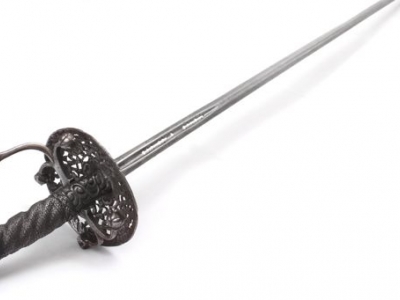
Kids behaving badly
Penny Morrison on what happens when children don’t act like you hope they will.
I was in for a shock.
I was confident that when I had children, they would be well-behaved.
I knew a lot about kids. I was a preschool teacher, so I knew all the best strategies on how to teach, discipline and encourage children. I loved teaching kids, but it was the parents who had the greatest influence on their children, and if they didn’t bring them up properly, then there wasn’t much I could do. I was looking forward to having my own children.
You can imagine what sort of shock I was in for.
Amelia, meet Josh
My first child (let’s call her Amelia) had turned 2 by the time her brother was born. He (let’s call him Josh) was never happy for long – a restless, irritable child. He spoke early, and learned to insult people with eloquence. He knew what he wanted, for example, ‘That kid hurt me and I want revenge.’
Amelia was a gentle child. And when I say gentle, I mean floppy. She sucked her thumb constantly and was quick to flop to the floor and cry at the hint of a challenge. I wasn’t surprised when she was disobedient at times, but I was a little baffled that rewards and punishment actually made no difference with these few areas of disobedience. No matter, they were only small things.
Josh was different. When I said, ‘No’, he heard ‘I dare you’. When I said, ‘If you do, then … ‘ he heard ‘I double-dare you’. A punishment like being sent to his room left him seething with anger, usually resulting in far worse behaviour. Of course, I talked about what we do, and why, and what hurts other people. He was intelligent in other areas, but didn’t connect with any of this.
"What could I do with a child like this?"
When he was three, I remember Josh pushing his friend off the trampoline. She hit the ground hard and was very distressed, but Josh was unaffected. Despite my horror that my own child had just done this, my overwhelming feeling was despair. Josh insisted he hadn’t hurt her. He just wanted her off the trampoline. Yes, he had pushed her, but not to hurt her, just to get her off the trampoline. She had finished her turn, so he wanted her off. Yes, he could see she was crying, but he couldn’t understand how that was connected to him, especially when he had kept the rule about waiting your turn.
What could I do with a child like this? I had one friend whose son was similar in some ways, and he was diagnosed with autism. I wasn’t a parent of a child with autism, I was just a Bad Parent. Giving up wasn’t an option, so I came up with elaborate strategies to reduce Josh’s feelings of irritation, help him be calm and put in as much positive input as I could, doing enjoyable activities together and teaching him about God’s grace and showing him love. I didn’t give up on punishment for deliberate disobedience, although I tried to focus on what would help him to calm down. With my third pregnancy I was in pain with unstable pelvis and feeling sorry for myself, wondering why God would give me this situation, when I had done everything I could to bring my children up God’s way.
At playgroup, Josh hit anyone who ‘looked angry’ at him, because he was afraid they were going to hit him. When we went visiting preschools, he growled at every teacher we met. He ended up with a lovely warm teacher, who suggested we invite a behavioural specialist to visit him. Infuriatingly, Josh had a good day when she visited. The casual teacher suggested I try positive re-enforcement. Now I was the one who felt like growling, but I managed to give a calm, professional response, since I am a teacher, after all. That means I managed to answer without crying.
Looking for a solution
When he was four, Josh’s baby brother (let’s call him Zach) was born. By this time, Josh didn’t like himself much. Sometimes he would say that he hated himself because he bit his sister, he wished he could be gentle with his baby brother or that he hoped the car would crash because he wanted to die. I figured something wasn’t right with him, so I went to a social worker.
After a few meetings, the social worker went to meet Josh and observe him at preschool. She reported that from everything I had said, she had expected him to have Asperger’s Syndrome. I had said Josh had no empathy, but she found that he did have a very very low level of empathy and therefore didn’t have Asperger’s Syndrome. I accepted this at the time, as I didn’t know much about Asperger’s. I now know that a person with Asperger’s can have empathy. The social worker told me that Josh was just an extremely difficult child and that I was doing a marvellous job. How depressing.
So, I tried changing his diet. He had several allergies and often had an upset stomach. I knew he was sensitive to food and suspected it affected his behaviour. Following the book Fed Up by Sue Dengate, I took all artificial additives out of Josh and Amelia’s diet. Amelia took hours to get to sleep every night, and always seemed tired. After 2 weeks, the diet had made no change to Amelia’s issues, but Josh was a whole new kid.
I could hardly believe it. The irritability and aggression was gone and he became affectionate. He learnt to ask people, ‘Does this food have additives? Because additives make me disobey’. After a few months he settled to something normal-ish. He still has faults but at a normal level, which we can work on with him. He is also funny, clever and creative.
A few things I've learned
Throughout all this, I have changed too. I don’t want to suggest that avoiding additives will fix all problems, but I do want to tell you how God has changed me. I didn’t even know I was proud.
Now, when I see a child behaving badly, I know it could be that the parents haven’t made efforts to discipline the child, but on the other hand, the parents might be rejoicing that their child has finally gone for a whole day without hitting.
Now, I can’t look at another person’s decision and think ‘I would never do that’ anymore, because I have been in many situations where the best choice is something I always thought I would never do.
Now, when I notice my children being considerate, generous or self-controlled I enjoy it, but I can’t congratulate myself. I feel a surge of humility and thank God.
But despite all of these positives, there was still another shock to come. While I poured so much attention into Josh’s behaviour, I had no energy left to properly attend to Amelia’s issues. More about that in my next post, Raising a child with Asperger’s Syndrome!
Penny Morrison is the author of the Hey! series which introduces infants to God their creator. Discover all her books by visiting the CEP Store.
For more articles from Growing Faith, subscribe to our monthly e-newsletter.
To hear about the latest books and resources from Youthworks Media, subscribe here.







